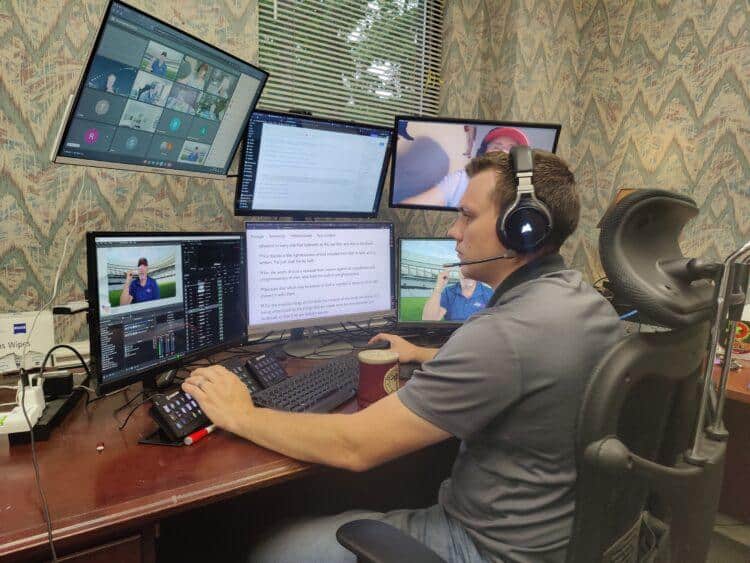Hey There,
Livestreaming is the practice of recording and sending video with extremely low latency. Less than two seconds. This is done best by video gamers who stream their games. They achieve the highest technical livestreams I’ve seen. Sixty frames per second, multiple streaming rigs, and high movement scenes. All of these things combined are what make livestreaming so difficult.
A livestream is built up of a few components. The inputs, the outputs, and the endpoints. Your inputs are your cameras, microphones, screen captures, video games, and guests. Your outputs are your video quality, keyframes, and rtmp URL’s to stream to. The endpoints are those platforms that you are streaming to. Youtube, Facebook, Rumble, etc. All of these inputs and outputs are managed by a few pieces of software that you can get for free.
The initial software you need to begin a basic livestream is Open Broadcaster Software, or OBS. This is your production software. You create the livestreaming template here. These are a set of scenes that you lay out for visual appeal. You place your spinning logo in the bottom left, you design a scene for sharing news stories, a scene for sharing video content, etc.
The next piece of software I recommend is Voicemeeter Banana. Audio is actually one of the hardest aspects of livestreaming. It can get very confusing when trying to route audio from your computer, to your stream, and then elsewhere. In our livestream setups we route the audio from the computer to the stream, then have to separately route the audio into a video conference call, all while avoiding a feedback loop. This took quite a while to perfect. Many many hours.
You may want to ingress guests and other content into your stream. Use VDO.Ninja for this. It is an open source project that is very well supported and updated by it’s creator. This allows you maximum control from offsite guests. It’s like a video conference software, but fully designed for a production setup using OBS. We use this is production every week and find it is a key component to making unique looking, guest based livestreams.
Once you mix everything together into a good looking livestream, you will want to send it out to your audience. You can do this directly on your own website using Datarhei’s Restreamer. We also use this software in production for all of our livestreams. It is amazing, open source, and supported by it’s creator. This software allows you to ingress a stream, and then send it out to as many endpoints as you want. Do you have 3 Youtube channels, a Facebook, and a Rumble channel? You can stream to all of them at the same time with restreamer.
The other components to livestreaming are studio setup and the hardware required. Depending on your goals, you may need some powerful PC’s $3,500.00+ range and high quality mics and cameras to get what you need. I’ll discuss some basics on studio setup and hardware setup in a later article.
Hire us for your livestreaming needs.
Sincerely,
Jared
Owner, Altha Technology

[…] based operating systems are weaker on the creative front. We do use Windows based computers for our livestreaming and production machines. We are using more and more open source software that works on linux, so in the next few years I […]